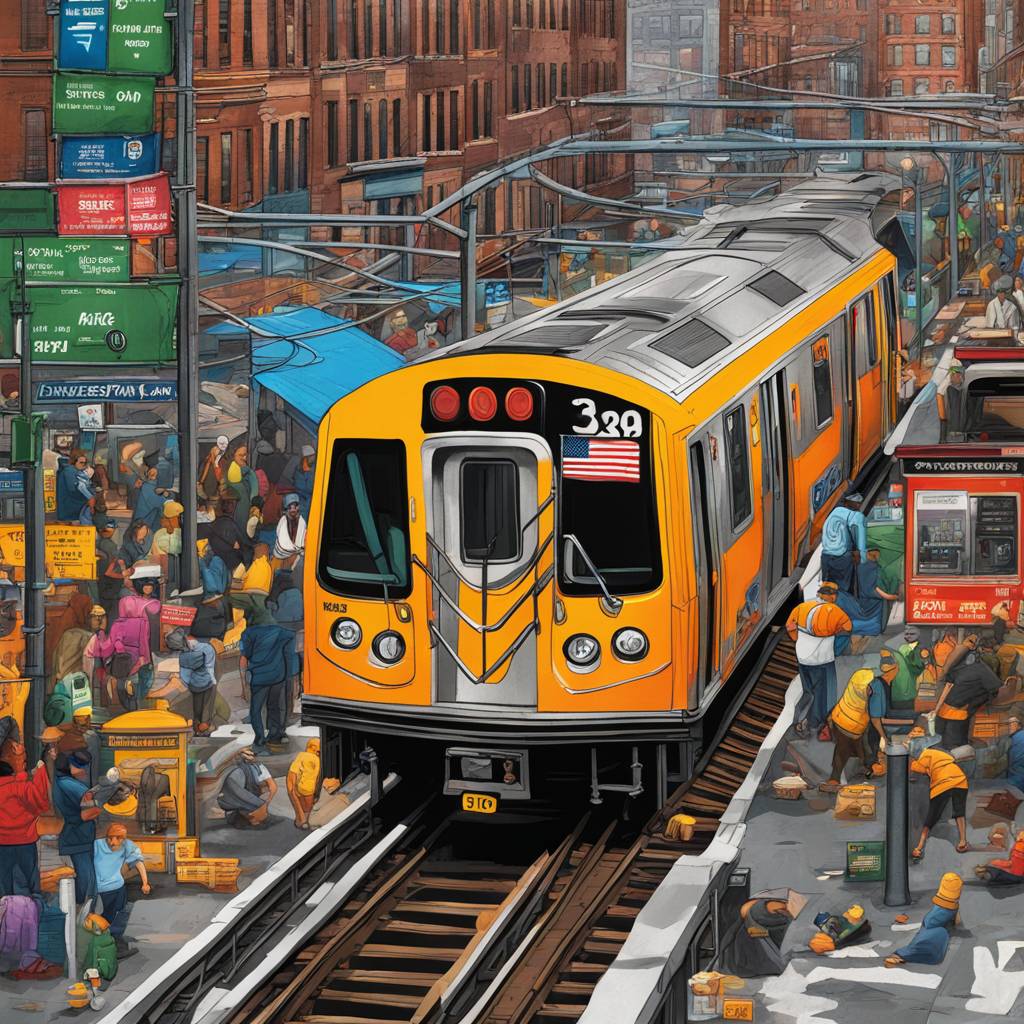Before their tragic encounter on a Harlem subway platform, the lives of Jason Volz, a recovering addict, and Carlton McPherson, hospitalized multiple times for mental health issues, seemed to be heading in opposite directions. Mr. McPherson had a history of violent incidents, including a charge for assaulting a homeless shelter employee with a cane. On the other hand, Mr. Volz had been sober for two years and had recently moved into a new apartment. The fatal interaction between the two men highlighted the ongoing challenges of addressing mental illness and violence on the subway, despite efforts by city and state authorities.
The incident prompted Mayor Eric Adams to acknowledge the limitations of police presence in preventing such attacks, particularly when individuals are dealing with severe mental health issues or engaging in criminal behavior. Mayor Adams and Governor Kathy Hochul have implemented various initiatives to address subway violence and homelessness, including moving homeless individuals into shelters, hospitals, or housing. However, the number of unsheltered individuals identified in the subway has continued to rise, indicating persistent challenges in providing effective support for those in need.
Subway crime rates have fluctuated in recent years, with some crimes exceeding prepandemic levels while major crime decreased in 2023 before rising again in 2024. Efforts to address mental illness in the subway have included sending clinician-police teams to assist individuals in crisis, but resistance to treatment remains a significant barrier. The complexity of the issue requires a long-term, comprehensive approach to address systemic neglect and provide sustainable solutions for vulnerable populations.
Psychology professor Philip Yanos cautioned against coercive approaches involving police in dealing with untreated mental illness, emphasizing the importance of compassionate and supportive interventions. For Mr. Volz’s ex-wife, his death symbolized a tragic loss after overcoming significant challenges. Meanwhile, Mr. McPherson’s mother expressed sadness over her son’s struggles with mental illness and brushes with the law, tracing his difficulties back to his adolescence. Observers noted the impact of family dynamics on Mr. McPherson’s mental health, highlighting the need for holistic support systems for individuals facing similar challenges.
As city and state officials continue to grapple with the intersecting issues of mental illness, homelessness, and subway safety, the complexity of the situation underscores the need for sustained efforts and a multifaceted approach. Despite various initiatives and increased law enforcement presence in the subway, preventing violent incidents involving individuals with mental health issues remains a complex and ongoing challenge. Efforts to address these issues must involve a combination of compassionate support, mental health resources, and long-term solutions to effectively support vulnerable individuals in the community.
The tragic encounter between Jason Volz and Carlton McPherson on a Harlem subway platform serves as a stark reminder of the systemic challenges facing individuals with mental health issues and substance abuse histories. With subway violence persisting despite efforts to address underlying issues, city and state leaders must continue working collaboratively to develop comprehensive solutions that prioritize the well-being and safety of all individuals in the community. Ultimately, addressing mental health challenges in the subway requires a nuanced and compassionate approach that takes into account the complexities of each individual’s situation and provides tailored support to promote positive outcomes.


